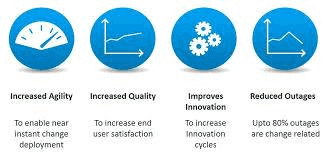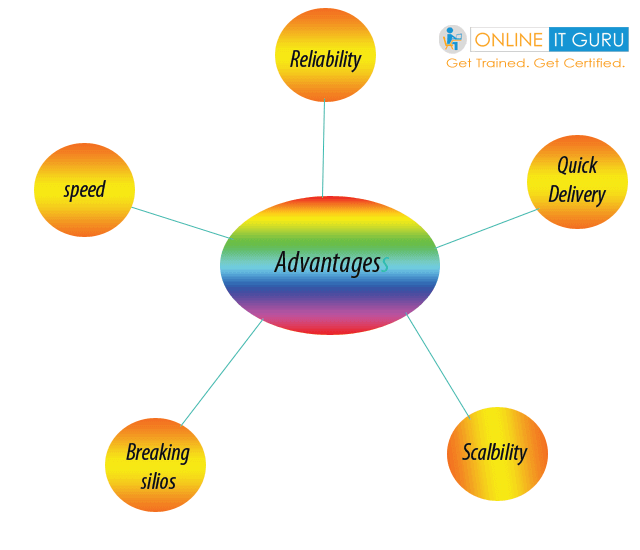
So in the previous block, we have seen DevOps definition and how this culture is different from traditional IT. But have you thought about DevOps introduction?
Why is DevOps used?
DevOps methodologies were responsible to implement continuous integrations and continuous delivery. Besides DevOps principles helps to launch products faster in the market. Moreover, there are some other reasons to implement DevOps principles in the organization. Let us discuss some of them
Shorter development Cycles and Faster Innovation:
DevOps principles were responsible for continuous development, testing, integration, deployment. Since the testing is done prior to the deployment, testers can detect the bugs in the early stage. Moreover, always a fresh bug-free code moves into deployment. So there is more scope for faster innovation in fewer development cycles.
Reduce implementation failure, reflections and recovery time:
Programming defects are the major reason for implementation failure. With short development, cycles promote the frequent code versions. These code versions are responsible to detect the code defects. So teams use this time to reduce the implementation failure through agile principles that require the collaboration and the standard programming. In any project, recovery time is an important factor. Moreover, when the development and the operations work together recovery is much faster. Furthermore, these teams work together to share their ideas and consider the development challenges in both the teams.

Better communication and cooperation:
Since DevOps encourages the collaboration of development and operations, this culture focuses on performance rather than individual goals. Moreover, when teams trust each other, they can experiment and innovate more effectively. Here the teams focus on making the product live into the market.
Greater competencies:
DevOps methodologies were responsible to automate the task. For instance, Continuous Integration servers automate the code testing process. Therefore it reduces the manual work required. So it means software engineers focus on non- automatic tasks. Moreover, speeding up tools is the chance to increase efficiency.
Also, check why DevOps is considered as the most important platform?
DevOps Advantages:
Speed:
DevOps is responsible to speed up the innovation process. Even when the market changes, It will provide more effective results and more productivity in the business.
Reliability:
DevOps model has made updating the application easy. Today it's not a big task to change the infrastructure (or) to deliver the software as per the user requirement. These practices have made it easy to test all the functionality and keep the security software for continuous integration and delivery.

Quick delivery:
The DevOps approach has increased the project frequency immensely which in turn helps in software delivery at an efficient and faster rate. Moreover, IoT(Internet of things) has helped in improving product innovation than expected. Besides, this culture has improved the customer response and provide a competitive edge to the business.
Scalability:
DevOps has improved the application in such a manner, it allows the user to move at a faster pace without compromising the control and acquiescence of an application. Even the DevOps policies are automated these principles hold on control as well as the management.
Breaking the Silios:
DevOps has broken the conventional style of documentation. Here each task is designated to the certain team and the effect data used to siloed. This, in turn, reduces flexibility and responsiveness. Moreover, beyond the organizational hierarchical lines, DevOps promoted mutual cooperation and communication.